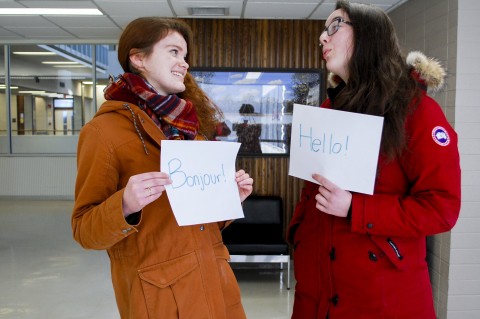More people are connected with greater access to information than ever before, but there are still some holdouts when it comes to accessible learning — predominantly the world of traditional academia.

Why do some required readings seem like they’re written in another language?
It’s easy to start pointing fingers regarding who is at fault for the inaccessibility of academic information. Some may choose to blame professors for this issue, while others may place the blame on the financial barriers created by universities — but there are other reasons.
The continued presence of a language barrier in academia has resulted from how these post-secondary institutions began. The first spaces known today as Western universities were created in eleventh- and twelfth-century Europe.
These places of higher learning were intended for people who had both the leisure time and the money to learn instead of working, during a time when the way in which a person spoke was an identifier of social class.
Also during this time, the French aristocracy was in power in England, but they still had to talk to the English aristocracy. Essentially, because of the use of French in court, those who spoke French were associated with higher ranks in society — this problem accelerated when people start using Latin to sound fancier and smarter. This association between language and social standing is likely partly to blame for the tradition of academic language.
In our university, professors in all fields have been trained in this continuing tradition, using exclusively academic language. For example, academia has a spoken, and sometimes unspoken, rule about writing from a neutral or objective position. Yet, no writing can be truly objective, because human beings hold varied perspectives.
The individuals who espouse the idea that academic language is a standard for neutrality often come from a high position in the social hierarchy. Academic language is almost a different language altogether — and certainly, it is a distinct dialect of English. Language is the backbone of a culture, reflecting the values of the societies in which it is used. Thus, academics value sounding fancier and smarter than the so-called lay population.
Despite all the shit that can prevent those outside academia from understanding academic language, the worst aspect of academic discourse is that it just does not sound natural. No one talks using academic language, which is why it’s so difficult for even monolingual English speakers to understand it.
Academics keep themselves disconnected by continuing to use this inaccessible language, and because of this, the world often does not listen to them.
Because academic language is inaccessible, it should no longer exist. Academic discourse creates a divide between people and perpetuates old ideas. There is no readily available source of modern academic work outside of these university institutions if you do not want to or cannot pay for a journal subscription.
Academic language allows people to create false and harmful ideas of professionalism and social status, simply because they sound “smart.” Yet, lectures are often given in accessible language, and they maintain their prestige, because students know that the professor speaking is an expert in the field.
Casual language should be celebrated in academia, because it betters the world through knowledge. If the knowledge has an opinion attached, then that just means the person writing it has a strong feeling about their topic.
Casual language feels natural to write in as well as read. It makes knowledge accessible to everyone, not just those with the privilege to study, who can decide when and how such knowledge is distributed. The next time an academic article seems too difficult to read, remember that your intelligence is not in question.
—
Taylin Dosch
Photo: Michaela DeMong
Leave a Reply